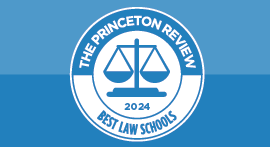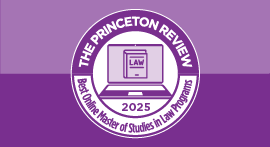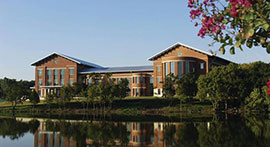Overview
Test Scores
(enrolled students)
Deadlines
Application Process
Other Admission Factors
LSAT Score
Undergraduate GPA
Essay / Personal Statement
Selectivity Rating
Faculty Information
Students Say
Legal education extends beyond the classroom at CUA, and the administration puts a lot of “emphasis on the school’s moot court, arbitration, and trial teams, as well as journals and clinics.” Plus, “all of the professors are more than willing and able to help connect students with internships, clerkships, and eventual jobs.” Research is also a major component of the academic program, and “the research librarians bend over backwards to help any student who asks.” If they cannot find what they need at CUA, the school provides “access to all major research databases as well as catalogs from most major libraries in Washington, D.C. through the interlibrary loan program.” When it comes to the job hunt, many would love to see CUA’s Career Services department significantly enhanced. A current student details, “While the people working there currently do a very good job, that office needs more funding and larger staff so they can help students learn about and apply for jobs.” However, “the connections to government and legislative opportunities” are strong at CUA, and the “very active alumni network” helps students make inroads in D.C.’s legal community. On that note, students point out that the school “focuses primarily on D.C. and government jobs, so if you're a student looking to work elsewhere after graduation, Catholic may not be the best option.”
Catholic University of America’s religious affiliation is more than just in name alone, and, depending on their own background, students either praise or deride the Catholic influence on their law school education. Prospective students should be aware that, even in strict legal discussion, “you don't get away from that Catholic perspective” at CUA. For example, “the school’s connection to the Catholic church prevents student groups from participating in certain activities, and makes some journal-writing topics off limits.” Others explain that because of the school’s stringent standards, “there can sometimes be trouble in getting outside speakers approved in a timely manner.” Excluding religious affiliations, most students are happy to note that the school’s Catholic values are wonderfully demonstrated in its “commitment to public service and pro bono” work.
Career overview
Career Services
Graduates Employed by Area
Prominent Alumni
Dates
Expenses per Academic Year
Student Body Profile
Demographics
Campus Life
Students Say
Taking a cue from the school’s friendly teaching staff, “students tend to be much more collegial at Catholic compared with the more cutthroat competition you find at other area schools.” This student body is a convivial crew who are instilled with the knowledge that “the people in our classes are going to be our colleagues when we are done with school, so everyone is willing to work together if someone needs help.” When they are not convening for study groups, CUA students also get together for clubs, association meetings, and school social events. Among other happenings, “the school provides the opportunity for a vast number of happy hours both on and off campus.”
More Information
Admissions Office Contact
Assistant Dean forAdmissions
Washington, DC 20064



